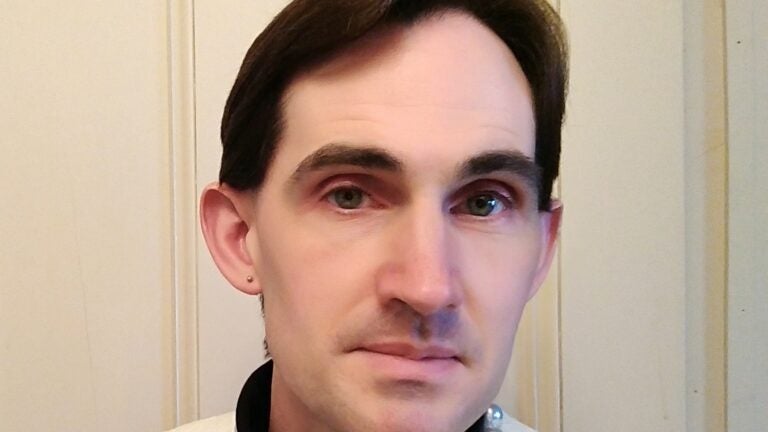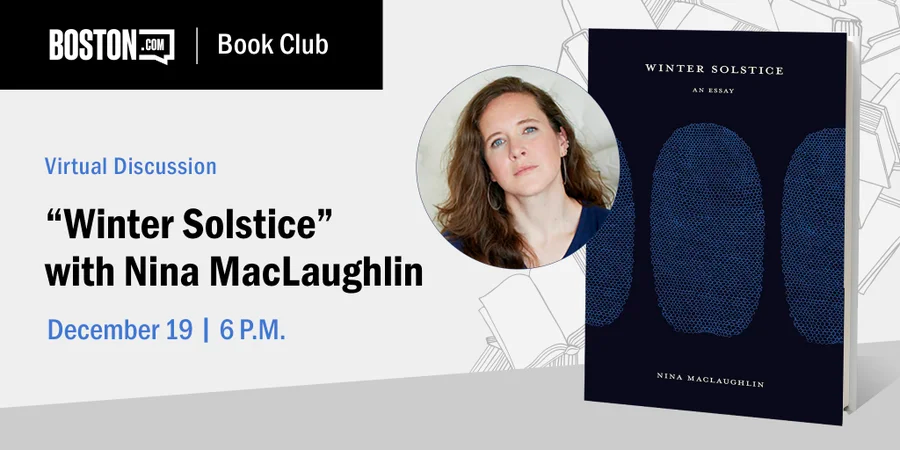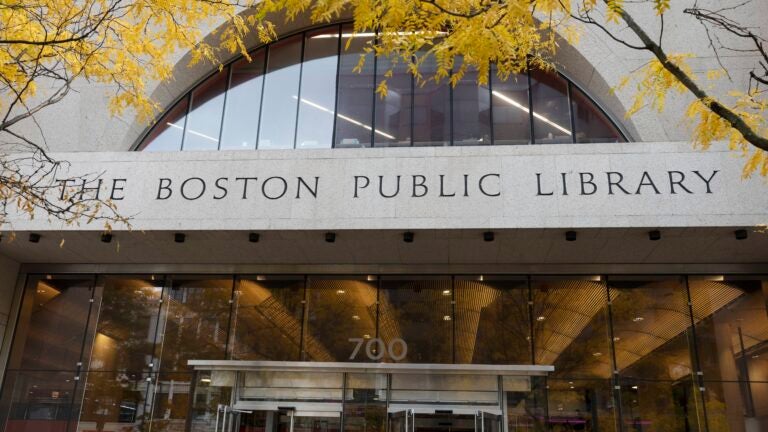📚 Stay up-to-date on the Book Club
Catch up on the latest Boston.com Book Club pick and join the virtual author discussions.

Rockland, Maine’s Hello Hello Books is a 800-square-foot shop in a small town, yet it manages to serve as a community hub where voices can be heard and hard discussions can be held. Operations director Jacob Fricke considers the store to be something of a “well-kept secret.”
“Even though we’re a small space that fits only so many titles, someone who walks in will be exposed to something amazing, no matter what they look at,” they told Boston.com. The store attracts both regulars and unfamiliar, like minded individuals who have traveled from far away, they added.
Hello Hello Books opened in 2011 and is “all but officially” a queer, feminist bookshop, Fricke said. It has become something of a center for queer and trans life, fostering inclusion through the titles the store stocks and the independent spirit that fuels operations. Part of what the shop does is symbolic, Fricke added, but the meaning behind their work goes beyond that.
“When you put a flag up, and you signal that that’s what you are and what you do, you’re on the radar of community,” they said. “You become a place that people gravitate towards. It’s like turning a light on. When you do everything that you can, at every level, to ensure that message is consistent…then you’ve got something long term.”
Activism has also been an important focus at Hello Hello Books. It’s a place that explores challenging questions about topics like white privilege, class, immigration, Indigenous issues, and sex work. Whether it’s through their curation of titles or book discussion groups, Hello Hello Books serves as a space for people to discover ideas and engage in discourse. Speakers have talked about topics such as being able to express grief in public and the history of Title IX. Fricke told Boston.com that the shop is not afraid of taking a risk.
“We’re also a bookstore that threw any shyness about taking a political stance out the window years ago,” they said. “And that’s a wildly freeing place to be. [With] the freedom to be able to talk about difficult issues that have a lot of social convention and social risk standing in the way…it’s a constantly thrilling and inspiring place.”
Before Fricke came to Hello Hello Books in 2012, they were named the poet laureate for Belfast, Maine for a two year term. In the past, they have also been a head organizer for the Belfast Poetry Festival, which they continue to help run. In 2011, they won the Village Soup “Best Local Author” award for their poetry collection “This Book of Poems You Found.” They were also honored with the Village Soup “Best Poet” award in 2015.
“I’m especially interested in ways poetry can break outside the frame of our tired expectations to open up new ways of seeing what’s right before us, new ways of being who we are — and [how] we’re strangers to ourselves,” they wrote in an email to Boston.com. “Poetry breaks free from the prosaic, from known forms and known ways of speaking, to open up possibility.”
The freedom that writing gives us is particularly apparent in the essay that Fricke will be exploring with author Nina MacLaughlin at Boston.com’s Book Club discussion on Dec. 19. “Winter Solstice” reflects on what it means to live during the coldest months of the year, how to navigate the darkness of the season, and how to find light through it all. MacLaughlin’s prose style, Fricke said, is “incantatory.”
“It engages with the subject in a way that is full and feels full, and it really opens up the gift box to show dimensions which one maybe never expected, which were so much in the unconscious, that one didn’t know they were dynamics,” they said, adding that reading the essay was “revelatory.”
“One thing that I always want in an essay, which ‘Winter Solstice’ does masterfully, is leap from emphasis to emphasis completely seamlessly and move across a lot of material in ways that kind of feels like flying.”
What “Winter Solstice” affirmed for Fricke is that there is value in experiencing these harder days.
“The more darkness is present — the more danger is known to be out there — the more vitality there is,” they said, “[the more] the sense of the urgency, the need, and the ongoingness of life [there] is.”
Fricke will speak with MacLaughlin about her “gem” of an essay on Dec. 19 at 6 p.m.

Catch up on the latest Boston.com Book Club pick and join the virtual author discussions.

Stay up to date with everything Boston. Receive the latest news and breaking updates, straight from our newsroom to your inbox.
Be civil. Be kind.
Read our full community guidelines.